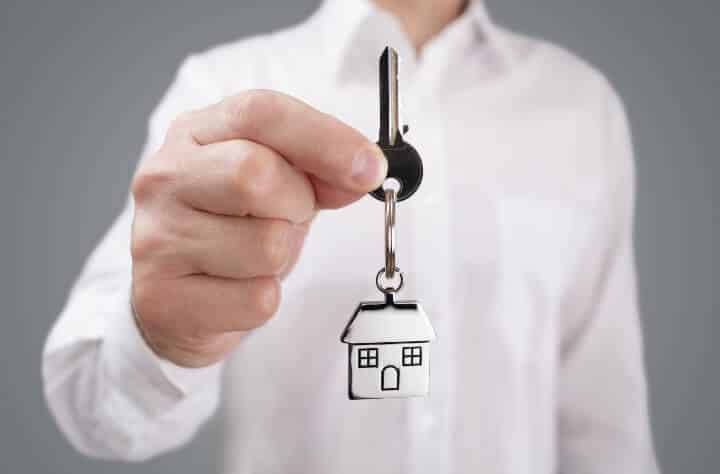Being a landlord can be quite a job. However, you cannot be there to watch your tenants at all times. Thinking of installing security cameras? Well, let's go over apartment security camera laws.

Tenants can be hard to control. Though you might find some lovely ones, others might not pay rent on time, be loud and disrespectful, and even damage property.
Having surveillance cameras can be a type of proof against the tenants if things get really bad. However, it can be used for good purposes too!
Having cameras can be evidence of theft, can save someone's life, and even better the environment for the tenants and their neighbors!
But with everything, comes a regulation. So let's take a look into apartment security camera laws.
The bigger picture
Before installing the cameras you should know if you are allowed to and where are you allowed to put it.
The quick answer is yes. You are allowed, however, apartment security camera laws are usually determined by your state or country.
It might range from state to state based on regulations. But for the most part, you should be allowed to as it is your personal property.
Apartment security camera laws
Location
Where you plan to place the camera could be the difference between legal and illegal. Therefore, you should keep in mind where you can and cannot place them.
In most of the U.S. states, you are allowed to place cameras in public, open spaces. Meaning spaces in which tenants should not expect privacy.
These places include mail/ delivery room, exits and entries of the building, elevators, staircases, pools, game rooms, and any other location the landlord deems needed if public.
However, in most states, you are not allowed to place cameras where people expect privacy. Especially since this could be a punishable offense.
Places in which people would expect privacy include, bedrooms, bathrooms, or anywhere else a person might change.
Meaning that tenants expect to have privacy inside their own homes just like how they do it at forte of rochester rochester mn. Therefore, apartment security camera laws state that you are not allowed to have cameras inside the units
Audio
Recording tenants can also bring up the fact that you might want to hear what is going on as well. So, are security cameras allowed to record audio?
Not only do you have to be careful with video tapping but audio too. Especially since it can get you into a whole lot of trouble!
It is illegal to record people without their knowledge. You should also have consent from at least one party that is in the conversation.
To avoid breaking federal wiretapping laws, if you plan to record audio and even video you should let your tenants know.
In most of the states, if tenants are warned audio is recorded, any conversation that they choose to have in front of the camera is counted as consent.
Meaning if the tenant decides to have a private conversation near the camera, you are allowed to hold on to the footage.
However, in other states, you must have consent from every tenant in your building to be able to record audio.
This can lead to issues as tenants move in and out of your property. But you must follow these apartment security camera laws.
By simply doing research on your state's government website you can avoid legal issues and potential fees, or/ and jail time.
Yet, it might be in your best interest to simply avoid getting a security system that includes audio to avoid any future problems it might cause.
Checking your state laws is certainly going to help you understand your restrictions and what you are allowed to record.
Transparency
A crucial part of installing cameras is being transparent about it and the motives behind it. Whether it is to figure out who stole the mail or just for safety.
Letting the tenants know that you will put up cameras and where they will be placed to show that you aren't hiding anything.
Another notable idea is to go ahead and add it to the lease or rental agreement as a clause, therefore, asking for the consent of the tenant even if you do not need it.
When added to the clause, there will be no issue dealing with lawsuits in which the tenant was not warned as it will be in the lease clause.
Additionally, they must be visible at all times even it is on your property. If hidden, they can be counted as illegal spyware or hidden cameras.
Before installing
Now that we are aware of apartment security camera laws, you should think of other things before you start drilling.
Consider these tips before moving forward with the installation process on your property.
Planning
You need to decide on various things before you install cameras. And you might even want to get a professional involved.
First, you should plan and decide what system you are going to be installing. Whether they are hard-wired or WiFi cameras.
Decide on just video or video and audio. However, keep in mind that you will need to meet the demands of your state.
Having a professional help you can be beneficial. Knowing how many units you will need and the cost of installing can give you some time to come up with the money.
Secondly, you should take some time to decide where the cameras will monitor. Therefore, giving you an idea of how many you will need.
As well as choosing a monitoring station to wire all the footage and store it. However, this is not all the things you should think about.
Lighting and angles
This is where a professional can come into play very well. Installing cameras can be an exact science.
Lighting can cause shadows, backlighting and so much more that can mess up your image and render your footage worthless.
Apart from that, to avoid any tampering, disabling, or vandalizing, install the camera in an out of reach height.
However, make sure it is still able to get a clear and good picture. It is important to find a balance between the two.
If utilizing WiFi cameras, you will not need a monitoring room to capture the footage. This is because you will have it on the cloud.
Usually, you will need to pay a monthly fee to store all your footage into the cloud for however long you want.
Accessing the footage can usually be done in any device, but this depends on the company themselves.
Checking the strength of the connection that the camera receives can help you see where you can and cannot place cameras.
With a WiFi camera, your priority is the connection to the router. The farther away, the more problems it will cause.
Testing
Before calling it a day, make sure to check that everything is working properly and running smoothly.
Especially is you paid a professional to install it for you! You do not want that money going to waste. Do you?
Thoroughly run tests of footage, and audio if you have it. Walk around the building a few times, check the monitoring system, etc.
Apart from that, periodically checking if it is working here and there could be what keeps the camera from malfunctioning.
The other side of the tracks
Though apartment security camera laws mostly apply to landlords, it might be beneficial for the tenants to understand it.
Not only should they know their rights, and be aware of the places cameras cannot be. They should also know that they can place cameras inside their home.
However, the apartment security camera laws still apply to them too. Tenants are also allowed to install cameras, unless they signed the lease in which it states they are not allowed.
They are allowed to install cameras inside their apartments and monitor it as long as it does not cause damage to property.
Most tenants use WiFi cameras that do not need wires and drilling into the wall. And it should definitely be acceptable.
Especially since it does not hurt the building, take away someone's privacy or bother anyone. But when the line is crossed, legal actions can be taken.
They should not be used to spy on neighbors, relatives or roommates. To have cameras professionally installed they should ask for the landlord's permission.
The bottom line
Tenants and landlords might not always get along. However, the installing of cameras might not need to get between this fight.
As we have seen, according to apartment security camera laws, regulations can be up to you to research.
But a landlord has the right to provide safety for his property and tenants without compromising their privacy.
